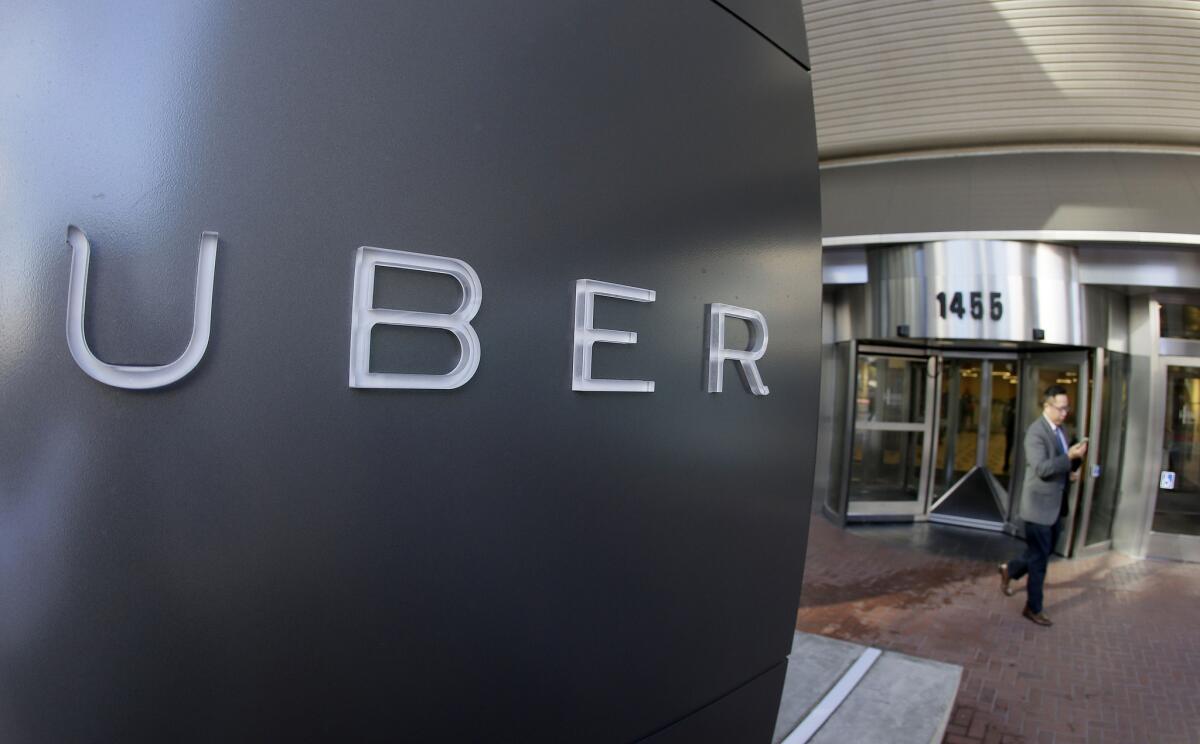Editorial: California after the Uber ruling

A man leaves the headquarters of Uber in San Francisco last December.
- Share via
A recent decision by the California Labor Commissioner’s office shows how poorly the state’s aging labor laws fit some 21st century workplaces. A former Uber driver demanded reimbursement for expenses the company requires drivers to absorb, claiming that she should have been treated as an employee instead of an independent contractor. A hearing officer for the commissioner agreed, citing the control Uber exerts over the details of its business. Although the ruling, which Uber is appealing, would affect only that one driver, the same reasoning could be applied by the commissioner or the courts to other Uber employees and smartphone-based services.
Here’s why that’s troubling. These new services are more than just a cheaper alternative to traditional providers. They’re a breakthrough for people who have something to offer the public but no way to do so effectively on their own. The emergence of specialized platforms such as Uber, Taskrabbit and Instacart has drawn enough customers and providers to make it viable for people to offer a service on their own schedule, for as many or as few hours per week as they choose.
State law, however, doesn’t care about such distinctions. It focuses on whether the workers are engaged in the same business as the company they’re working for, and if so, how much control they wield over the jobs performed. Because Uber sets the price of its service and numerous other details, the hearing officer held that the driver was an employee — even though Uber didn’t tell her how much or how little to work, where to do so or when.
The state’s rules are valuable when it comes to stopping companies from classifying workers as independent contractors simply to avoid the costs associated with employees, such as state-mandated workers’ compensation and unemployment insurance. That fight has been going on for decades across many industries. But with a growing number of Californians looking for part-time, temporary or entrepreneurial work, the state can’t afford to close off opportunities for those who prize flexibility over job security, and who need the help of a platform such as Uber’s to sell their services. California requires a new approach that would allow people to contract out their services independently through new platforms without enabling companies to magically transform employees into contractors with fewer benefits and no safety net. Suggestions for how to do so are beginning to circulate, and state lawmakers should start exploring them now.
Follow the Opinion section on Twitter @latimesopinion and Facebook
More to Read
A cure for the common opinion
Get thought-provoking perspectives with our weekly newsletter.
You may occasionally receive promotional content from the Los Angeles Times.









